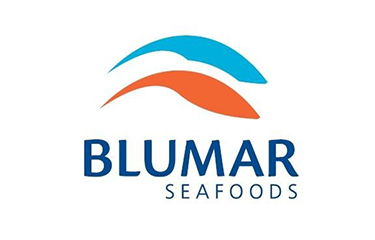Sixteen of Chilean salmon farmer Blumar’s 18 cages at its Seno Reloncaví center in Palena province, Los Lagos region, sunk in the early morning of 27 June due to heavy storms. A total 875,144 fish in the fattening stage, at an average weight of 3.8 kilos, were registered at the center.
"Our concern is currently to mitigate the environmental impact that the escape of these fish represents. The contingency protocols as stipulated by law were activated from the beginning, and our team, to the extent that weather and security conditions allow, will advance in this, in addition to recovering the structures,” Blumar General Manager Gerardo Balbontín said in a company statement.
The 13 workers on the floating structure were evacuated, and while the level of damage to the pontoon has yet to be confirmed, Balbontín said that Blumar’s logistics team will soon enter the area – with two boats and a tug – to install floats and evaluate the situation as soon as the weather permits.
“We have been hit hard by what happened because the company had been working on facing the complexities brought on by the coronavirus-caused world health crisis,” Balbontín added.
In early April, Blumar, together with the local unit of Mowi, registered the first cases of reported COVID-19 infected workers and contractors in Chile. In response, it enforced additional health and safety measures, which have affected operations.
With the remote location of the affected cages and currently volatile weather conditions, determining the magnitude of the escape has been challenging, Blumar Manager Pedro Pablo Laporte said.
"The adverse weather conditions still do not permit us to check the metal cages, so we don’t precisely know if the salmon are alive, dead or escaped. We will have certainty when we access the center,” he said.
Blumar has enrolled more than 400 fishermen to help in the recapture of escaped fish and agreed upon a price per capture, Laporte noted, and those authorized will work on the recapture for at least 30 days, as required by protocols.
The captured fish are to be deposited in authorized collection points, to be later transferred to the processing center in La Portada, which will use part of the capture to produce fishmeal and fish oil. According to Chilean law, the use of any captured fish must be expressly authorized by Blumar and the national fishing service, Sernapesca.
At the end of May, Blumar announced a USD 40 million (EUR 36.5 million) capital increase via the issuance of new shares, in order to strengthen the company's financial position and help it better cope with the financial impacts of the COVID-19 pandemic.







